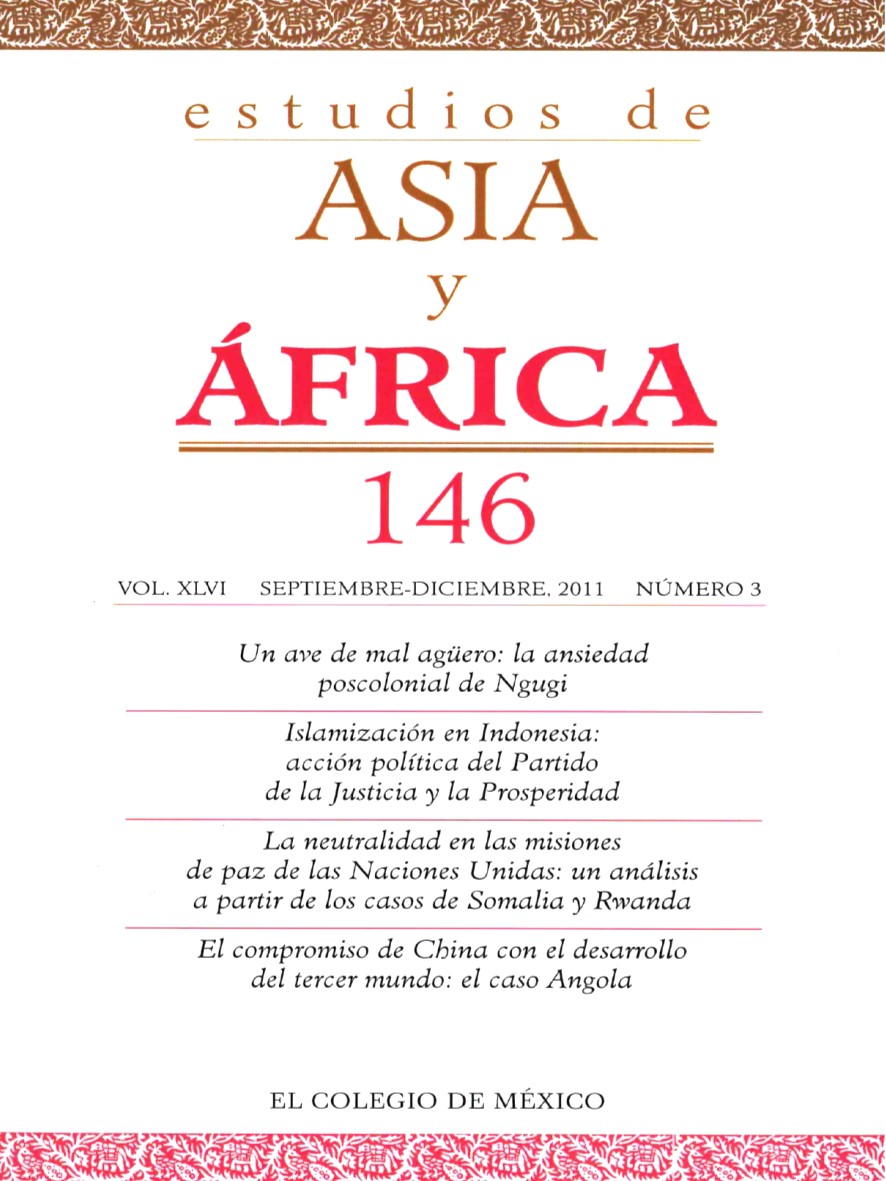Abstract
Usually, the most common approach towards the literatures of former European colonies has been that of post-colonialism. This essay seeks to perform an aesthetic assessment capable of surmounting the limitations that postcolonial perspectives often display when dealing with African literature. By focusing on Ngugi wa Thiong’o’s “The Black Bird”, the aim is to think over the various mechanisms of aesthetic and ideological influences that converge in this short-story and that confer on it a legitimate literary strength of its own. Thus, more than just appraising the text as a witness of postcolonial anxieties, the idea is to give it its proper value as a literary product, especially by resorting to the theory of influence.
This work is licensed under a Creative Commons Attribution-NonCommercial-NoDerivatives 4.0 International License
Copyright 2022 Estudios de Asia y África


